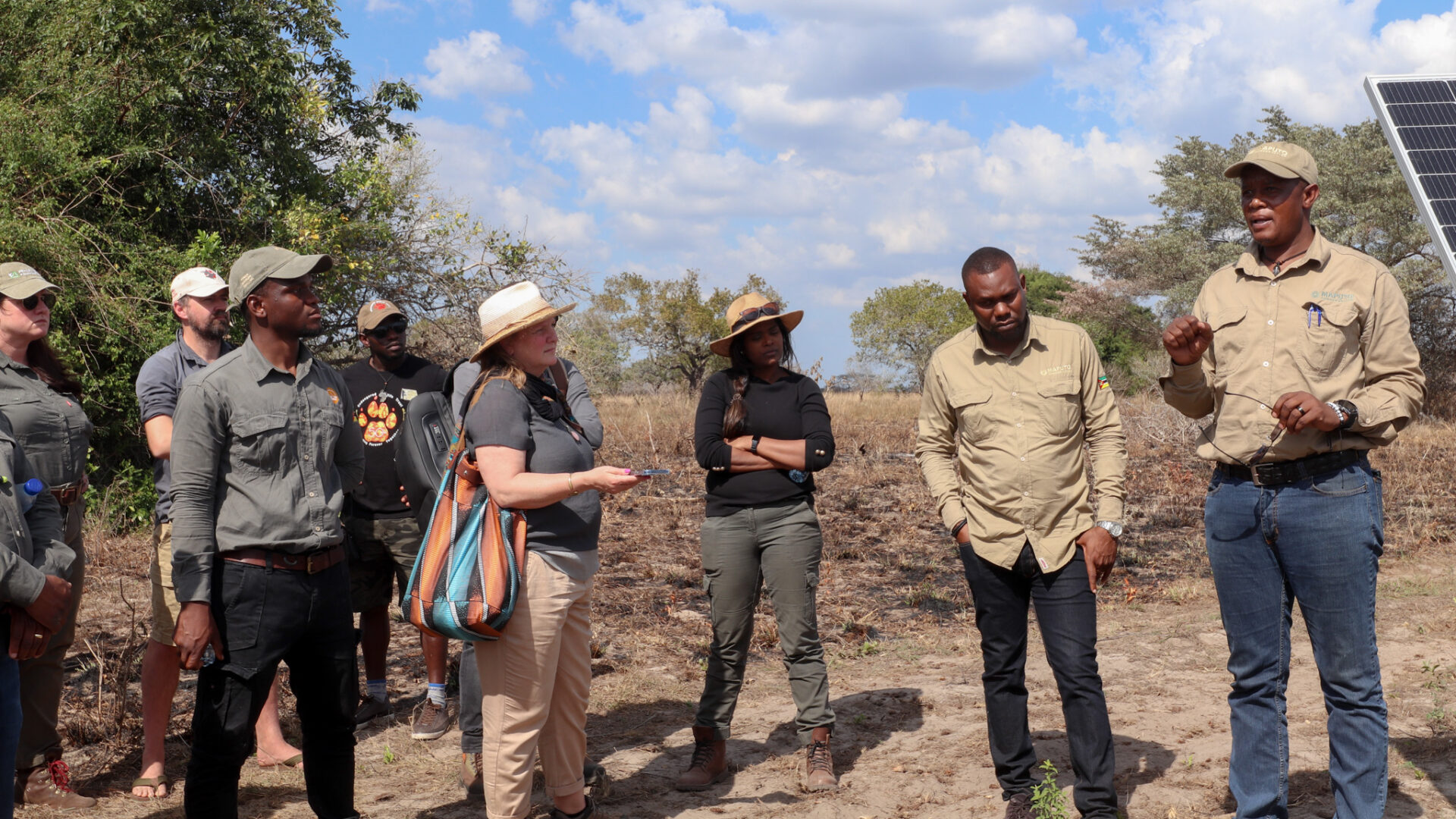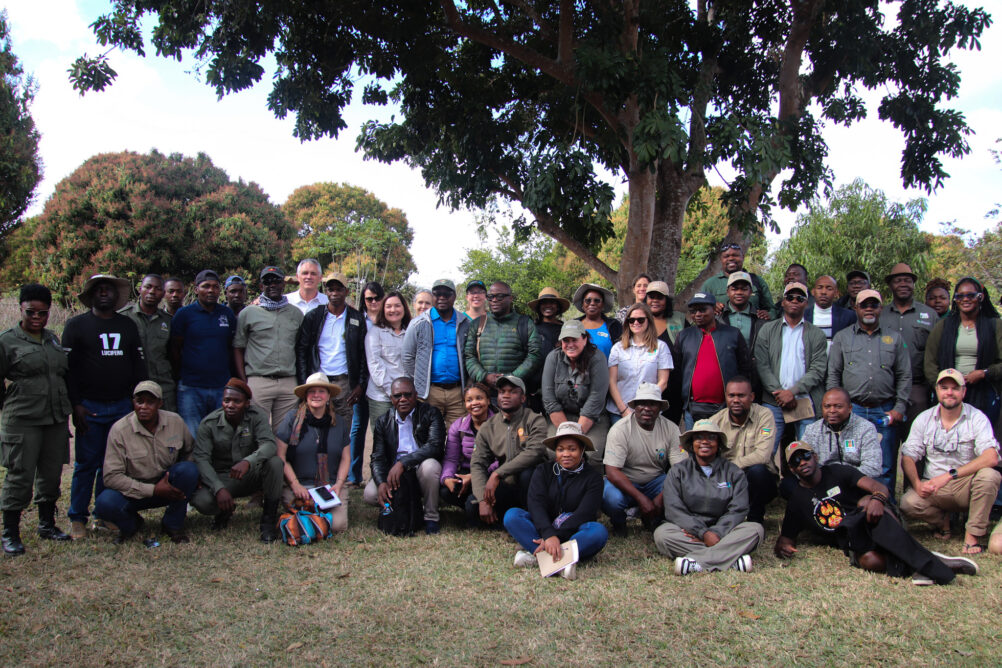A Regional Effort for Shared Solutions
Government agencies, community leaders and conservation partners from Mozambique, South Africa and Zimbabwe gathered in Maputo National Park in August for a hands-on learning exchange focused on reducing conflict between people and wild animals.
The gathering marked an important step in strengthening collaboration across the Greater Limpopo Transfrontier Conservation Area (GLTFCA) – a vast mosaic that links Limpopo, Banhine and Zinave national parks in Mozambique, Kruger National Park in South Africa, and Gonarezhou National Park in Zimbabwe – together with the surrounding communal lands that connect them.
Living alongside wildlife is both a privilege and a challenge. For families who farm nearby, encounters can threaten lives and livelihoods. And for those protecting biodiversity, these conflicts can quickly undo years of progress. Real solutions depend on coordination across borders, consistent approaches, and, above all, the active participation of local communities.
Tackling a Shared Challenge

During the exchange, community development and park managers from the three countries shared strategies for reducing conflict and building coexistence. Sessions focused on inclusive approaches that consider gender policies and social safeguards, ensuring that women, men, and youth all play a role in designing and driving solutions.
Participants saw firsthand how park management and local people are working together to safeguard both livelihoods and wildlife. They visited agricultural fields protected by tentacle fencing, an upgrade from traditional methods, which helps deter elephants and prevent crop loss.
“Initiatives like these are very important because they bring everyone together to share approaches,” said Maria Pinto, Conservation Officer at Maputo National Park. “Hiring community rangers and fencing farms in blocks reduces pressure on farmers while strengthening collective action and making ranger work more effective.”
Technology Steps In
Technology is also transforming field operations.
“Tracking units now allow us to see animals in near real time. When they enter high-risk areas, we can send alerts to rangers,” said Gareth Tate, Senior Conservation Manager at the Endangered Wildlife Trust.
Building People-Centred Strategies
In interactive sessions, participants explored how equal involvement of women, men, and youth strengthens conservation outcomes. They reviewed existing strategies that embed social safeguards and shared lessons from across the region to harmonise practices throughout the GLTFCA. Field insights were carefully documented to inform future projects and donor reporting.
“This exchange is about more than sharing tools. It is about building trust, strengthening partnerships and ensuring that conservation strategies are inclusive and equitable,” said Helena Atkinson, Peace Parks’ Community Development Manager. “By learning from one another, we can accelerate solutions that benefit both people and wildlife.”
Working Together for Lasting Coexistence
The exchange was organised by Peace Parks Foundation in partnership with Conservation South Africa, Conservation International, and Mozambique’s National Administration for Conservation Areas (ANAC), with funding from Global Affairs Canada through the Restoring African Rangelands Project.
Participants included representatives from Conservation International, Conservation South Africa, ANAC, SANParks, ZimParks, Conservation Synergies, EcoAdvisors, Endangered Wildlife Trust, Green Matter, Kruger2Canyon Biosphere, Mozambique Wildlife Alliance, The African Stove Company, Gonarezhou Conservation Trust, Frankfurt Zoological Society and Peace Parks Foundation.





